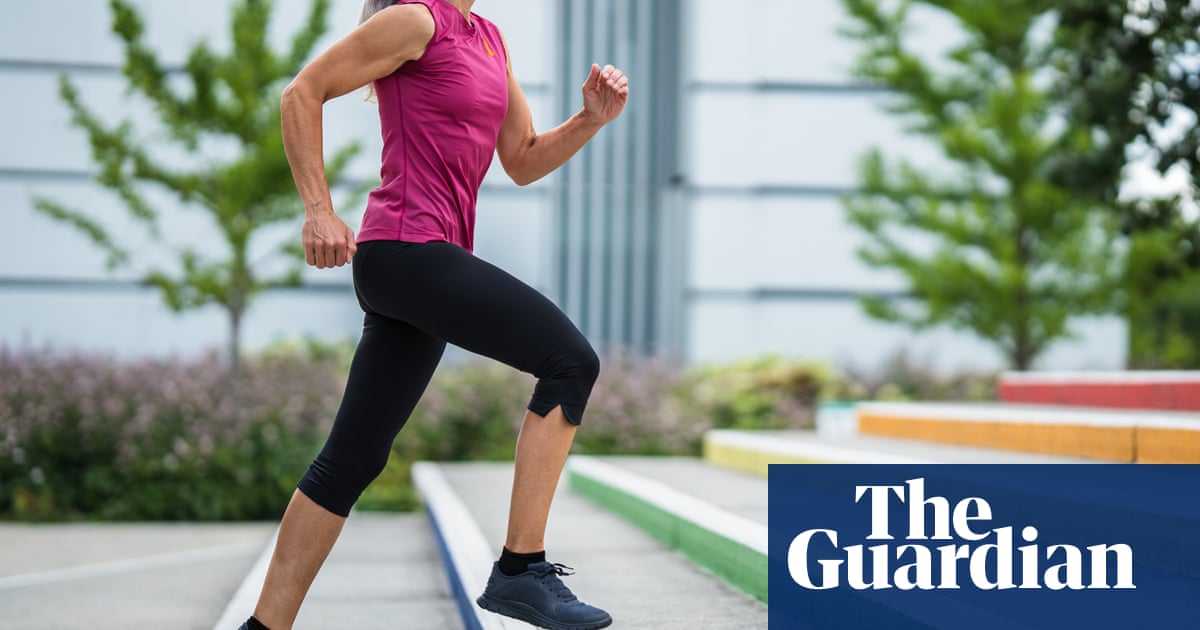Exercise can reduce the risk of cancer patients dying by a third, stop tumours coming back and is even more effective than drugs, according to the results of a landmark trial that could transform health guidelines worldwide.
For decades, doctors have recommended adopting a healthy lifestyle to lower the risk of developing cancer. But until now there has been little evidence of the impact it could have after diagnosis, with little support for incorporating exercise into patients’ routines.
Now a world-first trial involving patients from the US, UK, Australia, France, Canada and Israel has found that a structured exercise regime after treatment can dramatically reduce the risk of dying, the disease returning or a new cancer developing.
The results were presented in Chicago at the American Society of Clinical Oncology (Asco) annual meeting, the world’s largest cancer conference, and published in the New England Journal of Medicine.
For the first time in medical history, there was clear evidence that exercise was even better at preventing cancer recurrence and death than many of the drugs currently prescribed to patients, one of the world’s top cancer doctors said.
Dr Julie Gralow, the chief medical officer of Asco, who was not involved in the decade-long study, said the quality of its findings was the “highest level of evidence” and would lead to “a major shift in understanding the importance of encouraging physical activity during and after treatment”.
Patients who began a structured exercise regime with the help of a personal trainer or health coach after they completed treatment had a 37% lower risk of death and a 28% lower risk of recurrent or new cancers developing, compared with patients who received only health advice, the trial found.
Asked to put the effect of exercise on cancer patients’ outcomes into context, Gralow said: “We titled [the session it was presented in] As Good as a Drug. I would have retitled it Better than a Drug, because you don’t have all the side-effects.”
“It’s the same magnitude of benefit of many drugs that get approved for this kind of magnitude of benefit – 28% decreased risk of occurrence, 37% decreased risk of death. Drugs get approved for less than that, and they’re expensive and they’re toxic.”
“When I started three decades ago it was still the era where we’d be gentle and say, don’t overdo yourself when you’re on chemo. We’ve reversed that,” she added. “I would say [exercise is] better than a drug.”
In the trial, researchers enrolled 889 colon cancer patients between 2009 and 2023. Most (90%) had stage three disease. Patients were randomly assigned to take part in a structured exercise programme (445) or to just receive a healthy lifestyle booklet (444).
Those in the exercise group worked with a personal trainer twice a month for coaching sessions and supervised exercise sessions, and later once a month, for a total of three years.
The exercise group were coached and supported to help them achieve set exercise goals. Their weekly target was the equivalent of three to four walks of between 45 and 60 minutes, but patients could choose how they got more active. Some went kayaking or skiing, for instance.
After five years, patients in the exercise group had a 28% lower risk of recurrent or new cancers than those in the other group. After eight years, the same patients also had a 37% lower risk of dying than those just handed the healthy lifestyle booklet.
“After completing surgery and chemotherapy, about 30% of patients with high-risk stage two and stage three colon cancer will eventually experience recurrence of their disease,” said the study’s lead author, Dr Christopher Booth, of Queen’s University in Kingston, Canada. “As oncologists, one of the most common questions we get asked by patients is ‘what else can I do to improve my outcome?’
“These results now provide us with a clear answer: an exercise programme that includes a personal trainer will reduce the risk of recurrent or new cancer, make you feel better and help you live longer.”
Prof Charles Swanton, the chief clinician of Cancer Research UK, which funded the UK arm of the study, said: “This fascinating study captures the power of exercise to transform people’s health and boost their chances of surviving cancer after treatment. For an intervention that isn’t a drug, exercise offers remarkable benefits for patients.”
For some patients, “physical activity can be a gamechanger that shifts the course of their recovery”, Swanton added. “The findings suggest that oncologists should consider recommending a structured exercise programme after surgery to improve people’s chances of survival.
“But it’s important to remember that exercise isn’t the best option for everyone. My advice to cancer patients is to speak to your doctor before taking on any new physical activity.”
The findings are likely to change global practice, with doctors worldwide urged to discuss exercise regimens with their patients following treatment, oncologists in Chicago said.
While this study followed only colon cancer patients, Gralow said there was no reason to think the findings would not be applicable across other cancers. Booth said trials for other cancers would be needed, but added that data from this study suggested there were lower breast and prostate cancer occurrences in the exercise group.
“Exercise as an intervention is a no-brainer and should be implemented broadly,” said Dr Pamela Kunz, of Yale School of Medicine.
Responding to the findings, Prof Sir Stephen Powis, the national medical director of NHS England, said it was “really exciting” that tailored exercise after treatment could be “life-changing”.
“These landmark findings suggest that focused steps to exercise, from walks to workouts, could help turbocharge the body’s ability to prevent cancer returning after treatment and help save more lives.
“Being more active can have significant benefits in helping maintain a healthy weight, strengthen the immune system, reduce inflammation and lift mood – and it’s now really encouraging to see that exercise really could have the power to help more people survive cancer.”




